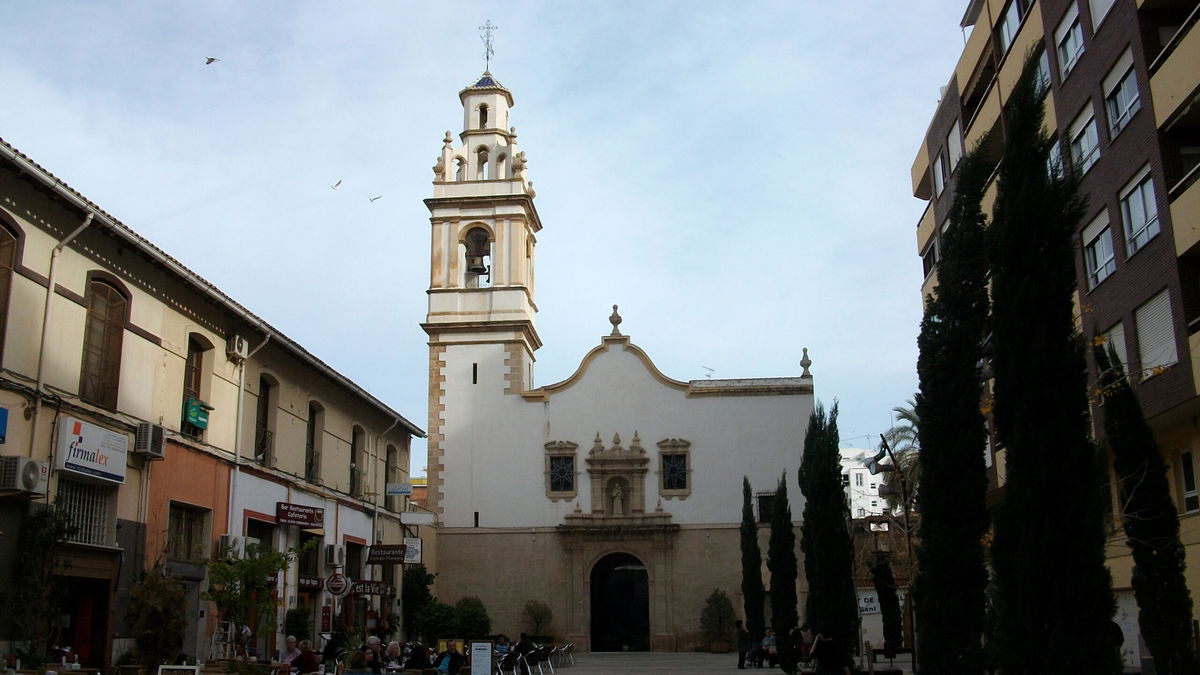According to municipal sources, all four projects have already secured the necessary licences. Credit: Joanbanjo / Creative Commons
Denia’s tourism model has long shared the same concern among local businesses and visitors alike: the town has good hotels, but not enough of them. That reality is now starting to change. Denia’s historic centre is experiencing an unprecedented rush of hotel projects, and up to four new hotels could open in the heart of the town in the short and medium term.
Although none of these developments will be large-scale resorts, they represent a shift towards boutique-style, centrally located accommodation that makes use of existing historic buildings. According to municipal sources, all four projects have already secured the necessary licences. Three of the future hotels are based on the rehabilitation of protected or historically significant buildings, while the fourth project is in an earlier stage of development.
Marqués de Campo: rehabilitation of a 19th-century landmark
One of the most striking projects is located at number 20 of Marqués de Campo, the most emblematic avenue in Denia. Building works have already begun, attracting the attention of passers-by due to the prominence of the site and the building’s strong social history.
Throughout the 20th century, the ground floor hosted several well-known social clubs and bars, including the iconic Neutro, a venue deeply linked to the city’s cultural and social life. In later years, the space became a bank and, more recently, a retail shop.
However, the new hotel development focuses on the upper two floors, where the clinic and residence of Manuel Lattur, a name well remembered in Denia for his contributions to both medicine and music, were once located. According to Denia’s catalogue of protected buildings (2017), the property dates back to the end of the 19th century, during the first major phase of urban development on Marqués de Campo.
The municipal catalogue states that the ground floor suffered numerous “discordant modifications” over the years, while the upper floors retained their original academicist façade and architectural features. That situation has now changed. Visible from the street, current rehabilitation works reveal an extensive internal restructuring. Although the façade must legally be preserved, the interior has undergone major alterations, and it remains unclear whether any original architectural elements—such as the impressive wooden staircase connecting the clinic and residence—will survive.
Fora Mur – Temple de Sant Telm: four-star hotel nearing completion
Just steps from the old fishing neighbourhood of Baix la Mar and minutes from Denia’s central facilities, a new hotel is preparing to open on the corner of Temple de Sant Telm and Fora Mur. The project, called Nómada House by SH Hotels, has already launched its official website, showing images of rooms and suites, although bookings are not expected to be available until 5 January 2026.
The building, which occupies a large corner plot, includes a rooftop restaurant offering views over the surrounding area. On the ground floor, the developers have already opened an establishment named Toy—a nod to the building’s industrial past.
In the 1940s, this area was home to warehouses and factories linked to the processing of raisins and agricultural products, later replaced by a cluster of toy factories, including the well-remembered Navarro and Linares companies. During renovation work, the project managers reportedly found invoices from a toy factory dating back more than 75 years. The name Toy pays tribute to that chapter of Denia’s industrial heritage.
Carrer Cop: returning to 17th-century hospitality roots
Also under rehabilitation is a building in Carrer Cop, a small but historically meaningful street connecting the Glorieta with the Town Hall square. The building, which once housed various shops and a real estate office, was placed on the market in January 2024 and was later acquired by private owners who have already started interior clearance and restoration works.
Centuries ago, during the 16th and 17th centuries, the street was lined with inns and modest hostelries that offered accommodation to travellers, who would tie up their horses in the open space that is now the Glorieta. For that reason, Carrer Cop became known as the street of the hostels. The arrival of this new hotel represents, in a way, a return to that earlier identity, although the architecture along the street today dates mostly from after 1850.
Colón: early stages of a potential hostel project
The fourth initiative is still in an embryonic stage. A small, currently abandoned house in Calle Colón, near the rear access to the Condado building, has been earmarked for a hostel project. The existing structure, a modest property with one upper floor, is not protected under heritage regulations, meaning it could potentially be demolished and replaced with a taller and more modern building. No construction has begun yet.
A step towards revitalising urban tourism
With these four developments, Denia is reinforcing its shift towards urban boutique tourism, complementing the well-established beachfront and resort-based offering. By integrating hotels into streets rich with local history, the town aims to create a more sustainable tourism model that revitalises the historic centre while preserving its architectural heritage.
If all four projects move forward as planned, Denia could soon offer a renewed and attractive selection of accommodation options—right in the heart of the town.
